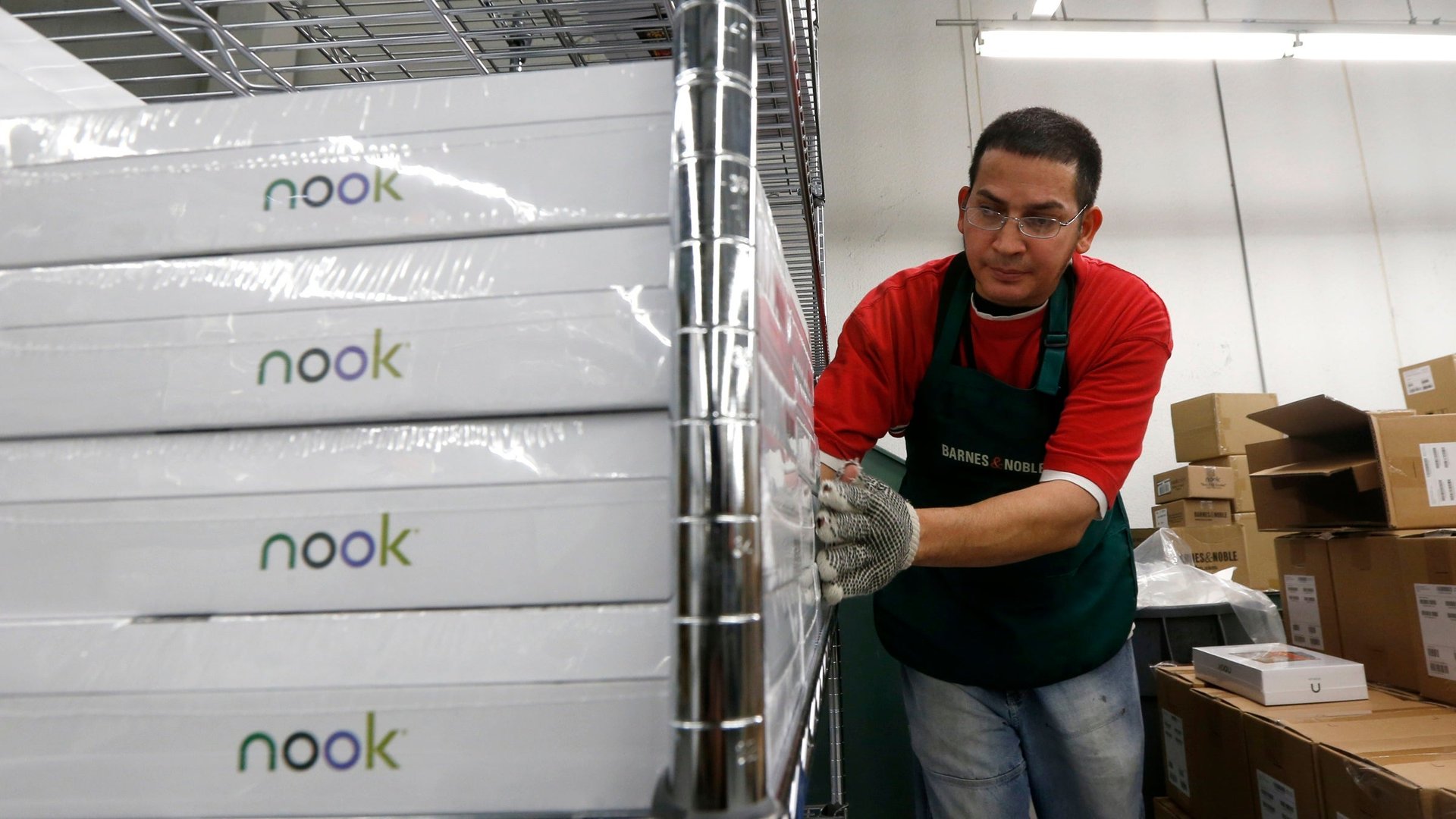Why Microsoft is willing to pay $1 billion for Nook: E-readers are dying, but publishing is forever
Microsoft has poured a lot of money into Nook Media, the publishing company that Barnes and Noble spun out in October, 2012—$300 million. Now Microsoft is rumored to be buying the entire company, for $1 billion.


Microsoft has poured a lot of money into Nook Media, the publishing company that Barnes and Noble spun out in October, 2012—$300 million. Now Microsoft is rumored to be buying the entire company, for $1 billion.
In light of the decline in interest in e-book readers—and right now most people know Nook as the battered also-ran in that category, after Amazon’s Kindle e-reader—this might seem ill-advised, for Microsoft at least. As mobile analyst Benedict Evans showed in his exploration of consumer interest in e-readers, the entire category is losing steam rapidly, and probably because people are switching to more general purpose devices—i.e. tablets—as primary e-reading devices.
Microsoft, wisely, doesn’t care much about the e-reader business. The same document obtained by TechCrunch revealing the possibility of an acquisition also suggests the Nook e-reader will be killed off by 2014. Rather, Microsoft wants all the content and publisher relationships that Nook has built up. In other words, Microsoft want to become a retailer of e-books, just like Amazon and Apple.
It makes sense: Whether we’re talking about Apple (iBooks, iTunes, the App store), Amazon (Kindle reader, Amazon Prime, Amazon Appstore), Google (Google Play, which covers it all) or Microsoft, what it takes to play at the highest level of consumer electronics is having not only compelling hardware, but also a compelling marketplace for media and apps, a walled garden into which a company can enfold customers and never let them go. (Microsoft declined to comment for this piece.)
Coda: What does all this mean for Barnes and Noble? There’s a strong case to be made the company will go the way of the now-defunct book retailer Borders.